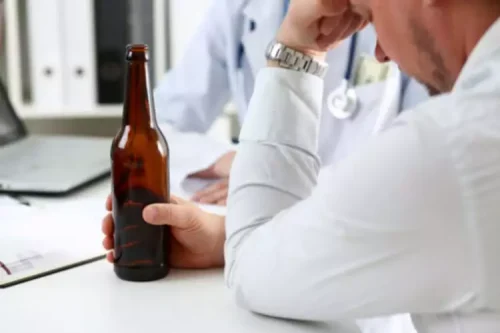One study found that 50% of people with HPPD had nonvisual experiences, and 38% developed symptoms unrelated to taking a hallucinogen. However, taking certain medications can worsen symptoms in some people. Maintaining close contact with a healthcare provider hppd symptoms when determining an effective treatment plan is important. There is little evidence that an individual’s chances of developing HPPD increase with their frequency of drug use; the disorder can also occur in people who have had little experience with hallucinogens. HPPD is divided into two types, according to the kinds of hallucinations the person experiences. In Type 1, an individual experiences brief, random flashbacks.
- HPPD can be an ongoing condition for some people, but one study found that at least one-third of people with HPPD went into remission.
- However, they do not yet understand the type or frequency of drug use that causes it.
- It causes people to see images and feel sensations that aren’t real, called hallucinations.
Treatment for Hallucinogen Persisting Perception Disorder
- It must be emphasized that individuals without HPPD will sometimes notice visual abnormalities.
- Secondly, HPPD seems to be more likely following the abuse of psychedelics, frequently occurring in a recreational context.
- Compared to people with HPPD I, those with HPPD II feel more intense symptoms.
- All the information from your eyes, ears, and other senses tells you that you are living through an event for a second time.
- Unlike the immersive flashbacks that some people have after taking drugs, HPPD flashbacks are purely visual.
- HPPD refers to when someone reexperiences visual and emotional sensations that can surface with psychedelic use after a substance is out of your system.
In an attempt to help health professionals differentiate flashbacks from HPPD, researchers writing in The Israel Journal of Psychiatry and Related Sciences defined two types of HPPD. Case reports by experts studying HPPD have revealed a large variety of symptoms. Some authoritative organizations refer to recurring flashbacks as HPPD. Others use strict criteria to differentiate flashbacks from HPPD. Additionally, marijuana is the most commonly used drug in the United States, but reports of HPPD among marijuana users are uncommon. More research is needed to understand why HPPD symptoms develop in some people who use psychedelics and not others.
What Is Hallucinogen-Persisting Perception Disorder (HPPD)?
Learning relaxation techniques like deep breathing or mindfulness exercises can help those with HPPD disorder remain more in control when flashbacks occur. Taking steps to manage stress through exercise, enjoying hobbies, socializing with others, listening to music and engaging in other activities may help reduce the frequency of flare-ups. The alterations in brain activity may be due to shifts in levels of the brain chemical gamma-aminobutyric acid or GABA. If you’re at work, you may consider designating a quiet, private place to wait for visual distortions to pass. According to a 2021 study, Ropinirole, a common Parkinson’s medication prescribed to help activate dopamine receptors, reduced symptoms of HPPD in a 20-year-old male. If you think you may be experiencing HPPD, it can be especially beneficial to be upfront with your doctor about symptoms.
- For this reason, it’s important you work with a doctor to find a treatment technique or coping mechanisms that help you handle the disturbances and feel in control when they do occur.
- This could mean hallucinogens may trigger longer-term brain changes.
- When you experience Type I HPPD, you’re usually aware that your visual changes aren’t real, although your sense of time may feel as if it’s been altered.
- HPPD involves lasting or persisting visual distortions and/or effects after a previous psychedelic experience.
The Two Types Of HPPD
- Benzodiazapines may also be used to eliminate HPPD I and significantly reduce the severeity of HPPD II11182122.
- As researchers come to understand more about the condition, a more extensive range of treatments may become available.
- These so-called ‘bad trips’ are more probable in uncontrolled and unsupervised environments.
- You might still see visual oddities long after the effects of psychedelics wear off.
- In Type 2, the experience is more disturbing and persistent, and an individual may experience consistent changes in vision.
- Of the 40 percent total, 73 percent said the changes didn’t bother them, 24 percent said they’d rather not have them but could live with them, and 3 percent reported distress.
These factors will help your doctor reach a diagnosis and help you avoid possible complications from drug interactions. Flashbacks are a feeling that you’re reliving an experience from your past. Researchers have recognized two forms of HPPD (type 1 and type 2).
Causes of Hallucinogen Persisting Perception Disorder
Given that fatigue can worsen HPPD, you should focus on sleep hygiene so Sober living house that you get both quality, uninterrupted sleep, and enough sleep. Thirdly, 2018 research by John H. Halpern and Torsten Passie suggests that one’s risk of HPPD is increased if the psychedelic experience was challenging. This means the experience included intense reactions of panic, dysphoria, and anxiety.
How HPPD is diagnosed
Hallucinogen persisting perception disorder (HPPD) signs include the presence of recurring visual disturbances after using a hallucinogen, such as LSD (lysergic acid diethylamide) or PCP (phencyclidine). HPPD can affect mental health and cause ongoing stress and concern. HPPD occurs when people take drugs — including (and especially) psychedelic drugs – and report significant, distressing changes to how they perceive the world. HPPD, despite the focus on perceptual changes, can sometimes involve changes to thoughts and feelings once the drugs have worn off. HPPD is a condition in the fifth edition of the Diagnostic and Statistical Manual of Mental Disorders (DSM-5). Importantly, other etiologies of this distress such as post-traumatic stress disorder, depersonalization, derealization, etc. must be excluded.
How is HPPD diagnosed?
More research is needed to understand the changes in the brain that cause HPPD symptoms. However, in HPPD, they tend to be less intense — it is mostly vision that is affected, rather than the other senses. It is usually apparent to a person experiencing HPPD that they are not seeing things in the way they used to. The Neurosensory Research Foundation14 was founded by HPPD sufferers to promote research and awareness around the condition.






